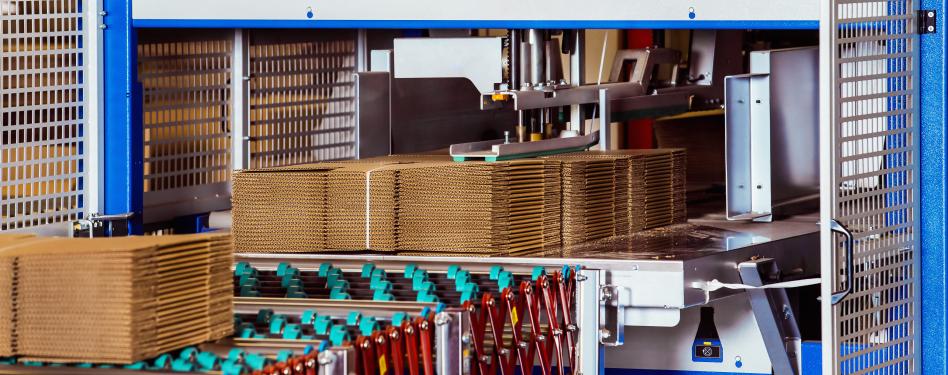
Feature image credit: Mayatnikstudio, Adobe Stock.
Based in India, the Flipkart Group is one of India’s leading digital commerce entities and includes group companies Flipkart, Myntra, Flipkart Wholesale and Cleartrip. It is a broad-reaching e-commerce platform that offers products ranging from furniture and groceries to electronics, clothing and beyond. As a major retailer, Flipkart recognizes the alarming issue of growing landfills in India and acknowledges the role businesses play in mitigating environmental impact.
With this in mind, Flipkart has invested enthusiastically in its sustainability strategy, including in zero-waste initiatives.
Flipkart's perspective
In 2023, we achieved TRUE Gold certification for zero waste at four of our distribution and warehousing facilities in Farrukhnagar, Uluberia, Malur and Renaissance. Last year, we diverted nearly 3,000 tonnes of nonhazardous solid waste away from India’s landfills. We view the TRUE Gold certification as a significant milestone that solidifies our position as a leader in eco-conscious commerce.
At the heart of this achievement is our dedication to fostering a circular economy within our company, with an emphasis on responsible consumption, material reuse and recovery, and steering away from environmentally harmful practices such as incineration and landfill usage.
Key strategies to achieving TRUE certification
Across our four TRUE-certified warehouses, we instituted several important strategies.
Awareness-building
We established a robust framework of sustainable waste management practices, including localized signage, on-site waste storage and dedicated staff assigned specifically for meticulous waste sorting. These initiatives were complemented by in-house data reporting, including using recommended templates to ensure precise tracking and monitoring of waste management metrics.
Waste segregation, collection and reporting
We achieved a pivotal shift in waste collection efficiency by transitioning from a single-bin waste disposal system to a more nuanced approach. Implementing regular vendor due diligence upheld waste management standards. This was coupled with a stringent data receipt system from vendors in accordance with established templates, contributing to accurate reporting.
Employee awareness and action
Employee education played a pivotal role, with comprehensive training programs fostering a culture of waste reduction and responsible disposal. Through the Clean Campus movement, initiated at our warehouses, we are not only raising awareness about sustainable practices, but also instilling a sense of responsibility among our workforce. This employee-centric approach contributes to a cultural shift toward sustainability, aligning with our larger vision.
Additionally, the establishment of zero-waste relationships with vendors created a collaborative approach toward sustainability, further enhancing the impact of these initiatives.
The shift to paper packaging
The circular economy principles embodied in the Clean Campus movement emphasize responsible consumption, reuse and recovery of materials, aligning with our commitment to a more sustainable and environmentally friendly business model. We transitioned to 100% paper-based packaging in 2021 to work toward those goals. This has significantly reduced our plastic packaging reliance and subsequent landfill footprint.
By shifting to a circular mindset across our warehouses, we also aim to use the paper scrap packaging materials generated within our own premises as raw material for fresh production. This innovative approach not only minimizes the use of natural resources but also reduces greenhouse gas emissions.
We have extended this approach to 13 sites, translating to approximately 50% of our total paper scrap generation. This reflects our comprehensive effort to create a closed-loop system, where materials are recycled and reintegrated into the production cycle, minimizing waste and maximizing resource efficiency.

Graphic courtesy of Flipkart.
The pursuit of zero
We are committed to achieving net zero carbon emissions in our own operations and the value chain. By increasing energy efficiency and sourcing our energy needs from renewable sources, we aim to reduce emissions by 100% in the years to come. We have already eliminated single-use plastic packaging from our supply chain and are part of the RE100 initiative, which means we are committed to meeting 100% of our electricity needs from renewable sources. We are also the first Indian e-commerce company to join the Climate Group's global electric mobility initiative, EV100, committing to a phased integration of EVs into our entire fleet.
Further steps toward sustainability
A year ago, we launched the "Flipkart Green" virtual store on the Flipkart app, offering a one-stop destination for customers to discover and shop for environmentally conscious products. The store includes over 48 brands and over 60,000 sustainable products to encourage conscious consumer choices.
We are also focused on collaborating with sellers, customers and partners. Our efforts align with India's goal of reaching net zero emissions. Our future aspirations regarding the net zero initiative include extending our efforts to additional warehouses and collaborating with stakeholders throughout our value chain. With a focus on resource efficiency and adopting sustainable practices, the Flipkart Group is leading the way toward a cleaner and more sustainable future.
Learn more about the Flipkart's commitment to sustainability